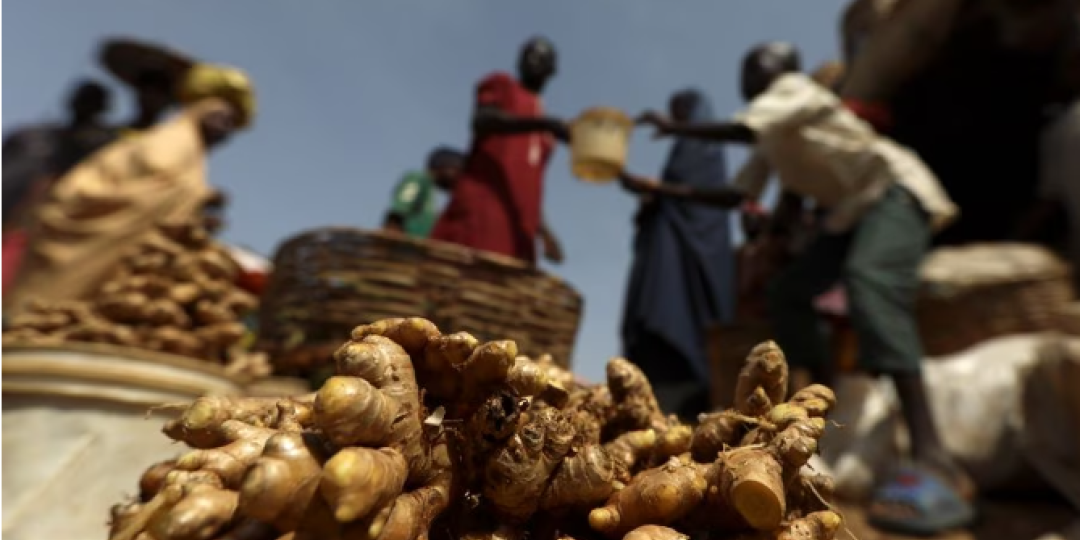Nigeria’s ginger exports have increased by 17% in the second quarter of this year compared to the same period last year, according to the country’s National Bureau of Statistics (NBS).
This meant income of N10 billion (€12 million).
According to the data from NBS, the country’s export value of the crop has been skyrocketing.
Ginger exports doubled from the 2nd quarter (Q2) in 2020 to Q2 in 2021, and growth was maintained in 2022 as export earnings from the crop grew to 4.6bn NIgerian naira (N).
In Q2 2023, it doubled to N10bn.
Nigeria exports around 90% of its ginger production.
The main export destinations for Nigerian ginger are diverse and not limited to a single country.
However, according to the World Integrated Trade Solution (WITS), in 2019, Nigeria exported spices, including ginger, to India (1 091 450 Kg for almost $927 000), the United States (481 000 Kg for more than $408 000), and the United Arab Emirates (234 000 Kg for more than $198 000).
The main producing zone of ginger in Nigeria is Kaduna state, followed by Nasarawa, Niger, Gombe, Bauchi and Benue
Sun-dried split ginger is the most exported type of ginger from Nigeria
According to a recent interview with the Nigerian Export Promotion Council, Nigeria exported $12 million worth of ginger in 2021 (523,000 metric tonnes), which represents 14% of global supply.
Therefore, while Nigeria exports ginger to various countries, India seems to be the largest importer of Nigerian ginger.
According to Freight News correspondent James Hall, Nigeria is the world's third biggest producer of the herb, after India and China.
"Nigerian ginger is among the world's best due to its aroma and high oil content. Kaduna state is the main producing area but other states can grow more to meet local, African and EU demand," he said.













